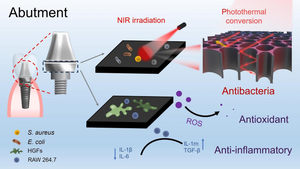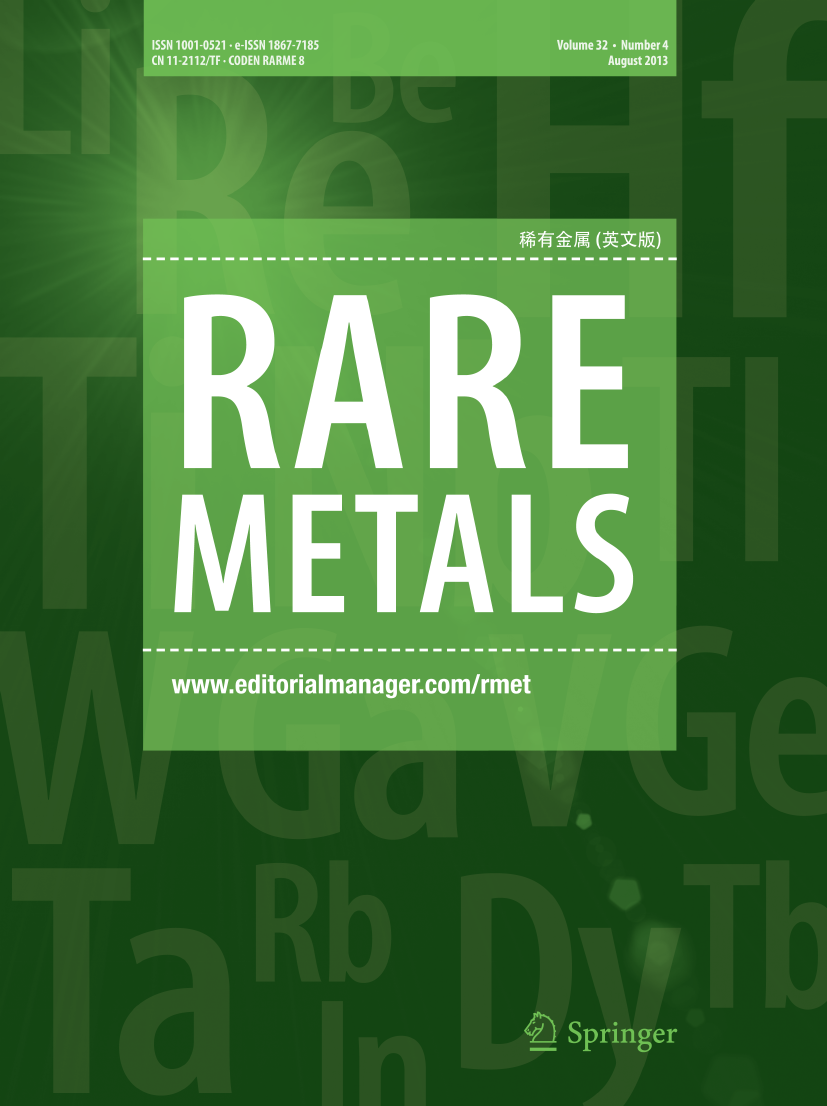Ce-doped defective titanium oxide coating with antibacterial, antioxidant and anti-inflammatory properties for potential application of peri-implantitis treatment
Abstract
Implant-related infections and tissue inflammation are the main factors for peri-implantitis. Lack of antibacterial activity and poor soft tissue sealing property increase the occurrence probability of peri-implantitis. To prevent and treat peri-implantitis, cerium-doped defective titanium oxide coatings are prepared on medical titanium surfaces by plasma electrolytic oxidation and thermal reduction treatment. In the darkness, Ce-doped defective titanium oxide coatings with micro-porous structure surface can inhibit the bacteria adhesion to some extent with antibacterial rates of 38.0% against S. aureus and 65.0% against E. coli. Under near infrared (NIR) irradiation, Ce-doped defective titanium oxide coatings show good photothermal antibacterial activity with antibacterial rates of 99.9% against S. aureus and 99.9% against E. coli. Moreover, with the increasing content of Ce-doping, the coatings exhibit higher capacity to scavenge hydrogen peroxide (H2O2) and 2,2′-azinobis-(3-ethylbenzothiazoline-6-sulfonic acid) radical cation (ABTS·+). The coatings with enhanced antioxidant effect can protect human gingival fibroblasts from oxidative stress damage by eliminating reactive oxygen species and promoting initial cell adhesion. Besides, Ce-doped coatings can regulate the immune microenvironment by up-regulating the expression of anti-inflammatory genes and down-regulating the pro-inflammatory genes. In vivo animal experiments further confirm the good antibacterial activity of Ce-doped defective titanium oxide coatings under NIR irradiation and good biosafety. This work provides a novel surface modification strategy for implant abutment, which shows good application prospects for preventing and treating peri-implantitis.
Graphical abstract


 求助内容:
求助内容: 应助结果提醒方式:
应助结果提醒方式:


